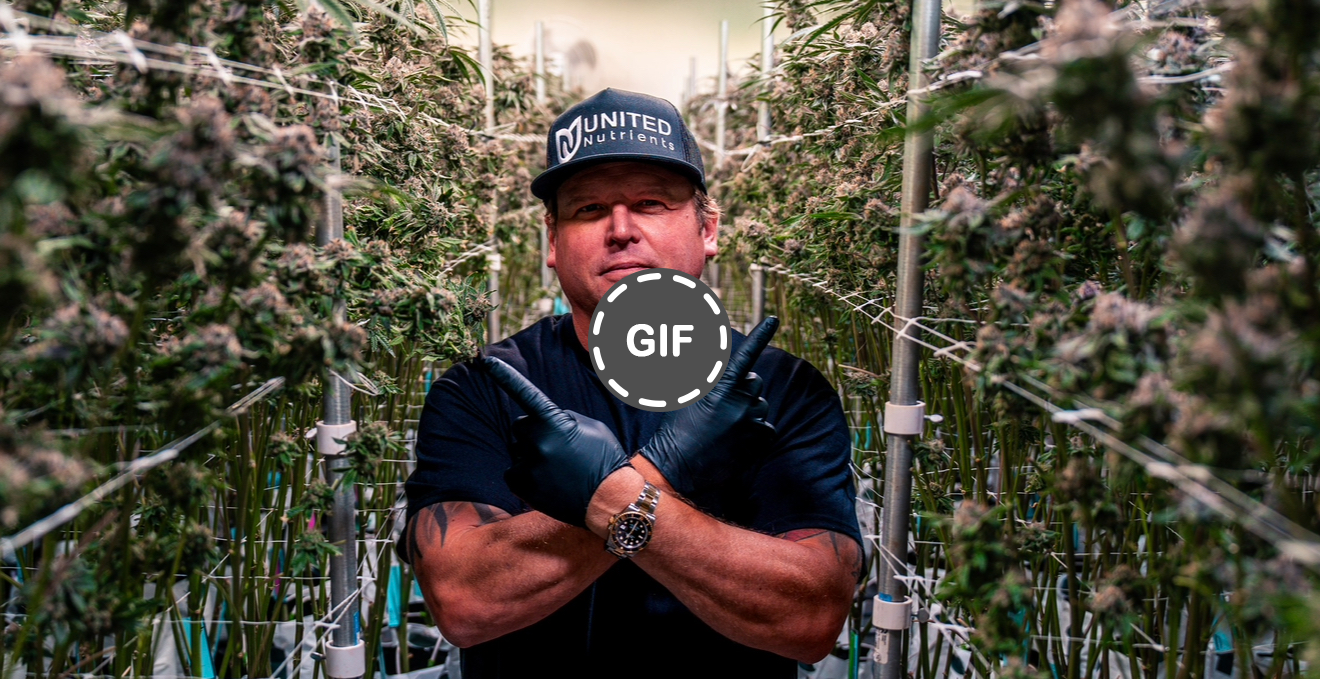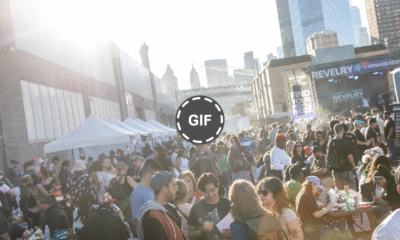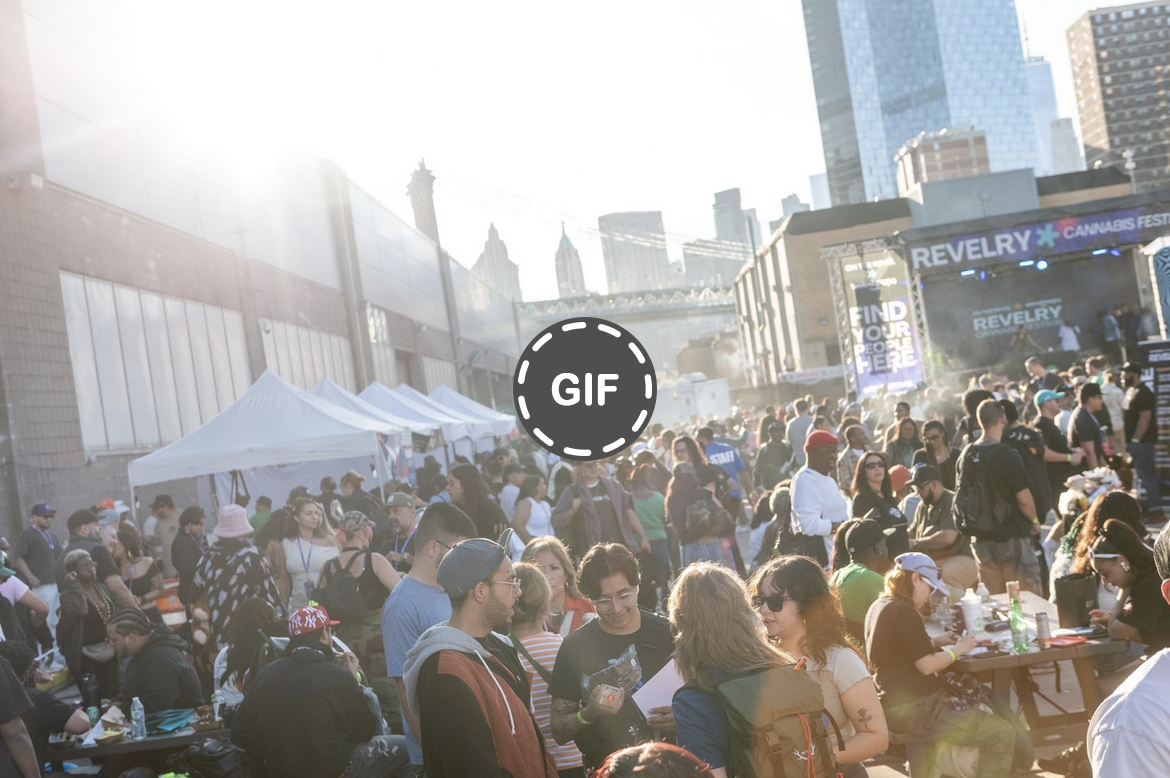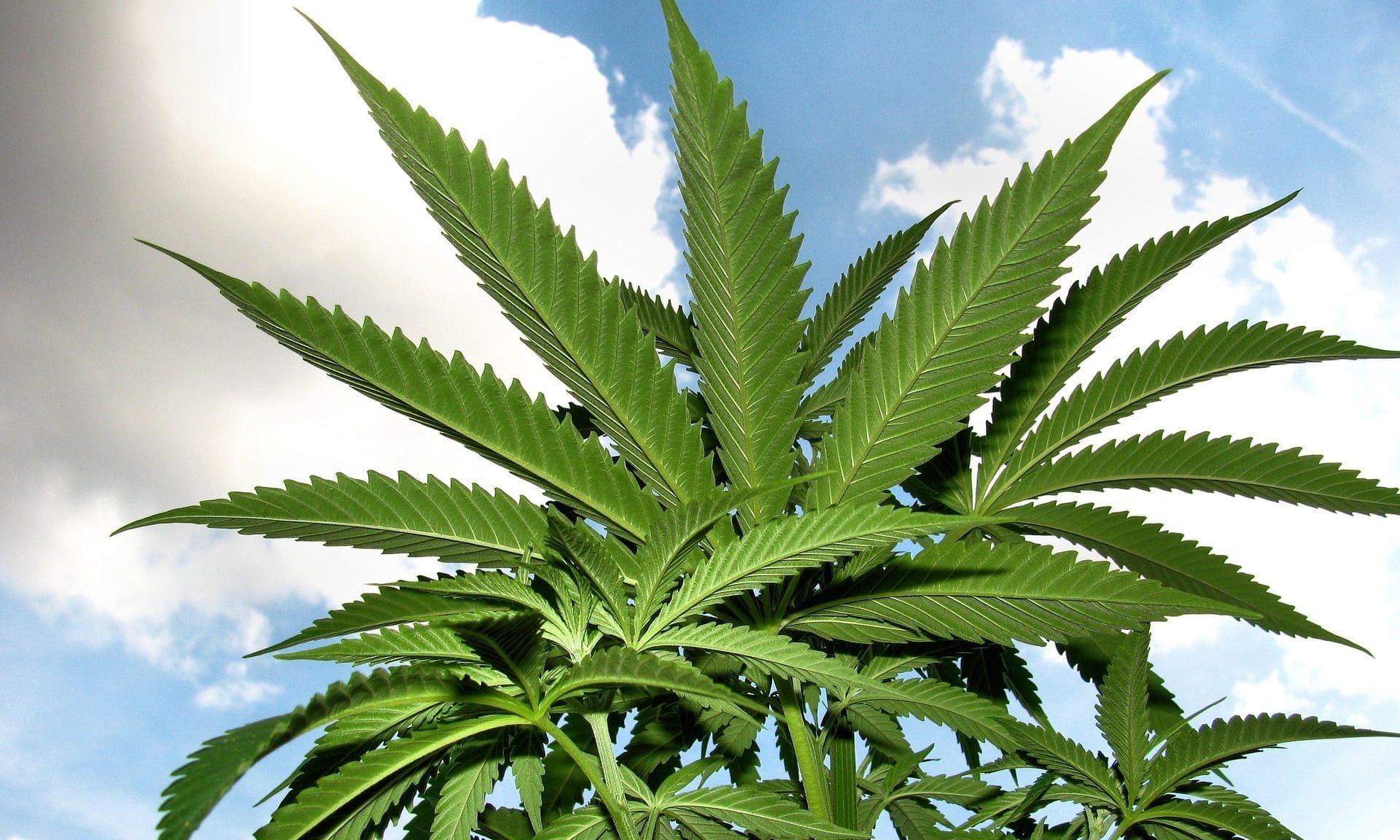featured
High Times Was The Most Influential Publication Of My Life
Published
2 hours agoon

What does it mean to you? So often, we forget that each of us sees the world through a unique lens. While we may share an experience, our exact perspective is ours alone.
Many of us discovered High Times during different chapters of our lives. For me, it started in childhood. I grew up reading the magazine, drawn to its bold voice and rebellious energy. It inspired me. It offered a sense of freedom—and more than anything, it reassured me that I wasn’t alone in believing this plant made life better. Whether cannabis helped us feel balanced, feel whole, or simply feel good, High Times was a beacon for those of us who saw it as more than just a vice.
Today, cannabis is often framed as a safer alternative to alcohol or tobacco. While that may be true, that narrative feels incomplete. For those of us who came up in the culture, the plant was never just about harm reduction. Our early experiences weren’t driven by taste, branding, or appearance. They were about how it made us feel.
We smoked what we could get our hands on. Brown buds with stems and seeds—sometimes green, sometimes dry and dusty, sometimes damp and moldy. The names were basic or nonexistent. We called it green, brown, dirt, chronic, bammer. No one was posting nug photos or comparing flavor profiles to candy. We were in it for the high, for the relief, and for the connection.
For me, cannabis was a constant. Before school, at lunch, after school. We masked the smell with gum, sprays, and excuses. Everyone around me smoked. My friends, the dealers, the heads at shows, the random adults who still had a foot in the underground. Often, people sold just to afford their own habit. The culture grew organically from the lifestyle. And while we were getting high, we were also medicating—whether we called it that or not.
Cannabis is the most diverse cultivated plant on the planet. No other species has been shaped and selected into as many distinct types. It’s an adaptogen, and our bodies are equipped with cannabinoid receptors that allow the plant to affect us in complex and deeply personal ways. This is part of what makes it so difficult for doctors to prescribe in a conventional sense. One cultivar might energize one person and sedate another. Some feel calm, others paranoid. Its effects are influenced by body chemistry, food, mood, stress, time of day—even the weather. It is not one-size-fits-all.
High Times helped us make sense of that variability in the plant and the culture around it. It was the most influential publication of my life. I still have my collection from the early 1990s, each issue stacked with care and reverence. The article that captivated me most growing up was the “Million Dollar Grow Room.” Years later, I was honored to be featured in the second edition of that same article. That moment of reflection and recognition remains one of the defining highlights of my career.
Over the years, I’ve built lasting friendships with former High Times editors, writers, and photographers. These were true believers who helped shape the voice of the movement. Now, a new generation carries that legacy forward. And it is not a light burden.
High Times is more than a brand. It is a cultural institution. It carries the stories of survivors, visionaries, and revolutionaries. From Jack Herer to Michael Kennedy—from legalization architects to counterculture icons like Steven Hager—the magazine has always served as a platform for voices pushing against the mainstream. And we can’t forget the countless unnamed contributors, those who submitted stories and photos without credit or compensation, simply for the love of the plant and the mission.
The groundwork has been laid. But the story is still being written. The cannabis industry continues to evolve, and with it, our responsibilities. We owe everything to those who came before us. This plant has traveled across continents, passed from hand to hand, seed to seed. In the past seventy years alone, we’ve witnessed an explosion of cross selection and hybridization unlike anything else in agriculture.
High Times was a catalyst throughout that process. From the 1970s through the later part of the 2010s, it helped shape what the cannabis community would become. Much of what we see now in newer publications and across social media can be traced back to the culture that High Times helped nurture and protect.
I’m an optimist. I believe the best chapters are still ahead. The High Times name still matters. It still carries weight. It still represents something sacred. And if stewarded with care, it can continue to be a voice for the culture and a champion of the plant. The impact the brand has already made is immeasurable—but its potential is even greater. Our passion is real. Our connection is deep. And we are fortunate to be part of something larger than ourselves—part of a movement, part of a legacy, part of a plant that makes the world better, one person at a time.
This article is from an external, unpaid contributor. It does not represent High Times’ reporting and has not been edited for content or accuracy.

Author: mscannabiz.com
MScannaBIZ for all you Mississippi Cannabis News and Information.
You may like
-


Revelry NYC 2025: Inside New York’s Cannabis Culture & Industry Festival
-


Revelry NYC 2025: Inside New York’s Cannabis Culture & Industry Festival
-


Indian Tribes See Opportunity In Hemp THC Products, Even In States That Continue Marijuana Criminalization
-


Two Oakland cannabis dispensaries targeted again by ram-raiding burglars
-


Trump on changes to marijuana policy: 'We're looking at it'
-


Bill Maher Takes Credit for Possibility Trump Might Reshedule Marijuana
featured
Revelry NYC 2025: Inside New York’s Cannabis Culture & Industry Festival
Published
3 hours agoon
August 16, 2025
In just a few short years, Revelry NYC has become the cannabis event where New York’s culture, commerce, and community converge. This year, it’s taking over Pier 36 in Manhattan on September 12–13, 2025, and according to co-founder Lulu Tsui, it’s bigger, more inclusive, and more dialed-in than ever.
As the Chief Experience Officer for On The Revel, Tsui has spent years designing events that bridge the gap between New York’s rapidly evolving cannabis industry and the community that sustains it.
“We create spaces, trade shows, events, and industry nights specifically for the cannabis industry,” Tsui told me. “To gather good people who are working in the industry, interested in the industry, and who want to support the community.”
Lulu’s story starts far from the Manhattan waterfront. Her family immigrated from northern China to Eugene, Oregon, in the late 1970s, a place she describes as “a little hippie college town that hasn’t changed since the ’60s.”
The people who helped her family adjust to life in America were cannabis growers and distributors. “I was just raised by aunties and uncles that had a very different viewpoint towards cannabis and psychedelics,” she said. This was in stark contrast to her “super hardcore communist dragon” parents, who, like many Chinese immigrants, were hesitant and still saw cannabis simply as “drugs.”
That early exposure shaped her belief that “community and how you talk about it, how you work with it, can change hearts and minds in such a huge way.”
Her first cannabis experience came at 13, facilitated by her aunt, followed by an equally intentional introduction to psychedelics from her uncle. “It’s not a taboo thing. It’s not a scary thing. It’s a healing thing.”
Photo: Angie Vasquez
Designing Experiences Like No One Else
Tsui and her co-founder, Jacobi Holland, approach event production like UX designers. “We’re the most annoying group to work with because we talk through the flow for every interaction,” she laughed. “From sponsors and exhibitors to attendees and speakers, we design based on what people need.”
They also have the rare advantage of having worked as operators themselves, Tsui in the Washington State market, Holland in Colorado, bringing firsthand understanding to every decision. “Would you have a shoe designer design a shoe if they’ve never worn shoes before?” she asked. “We know the challenges operators face.”
The team behind Revelry reads like a cross-disciplinary dream roster:
- Jason Starr, a human rights lawyer and co-author of New York’s MRTA legalization bill.
- Peter Marcato, neuroscientist and head of community and content.
- Gerald Dean, a veteran of sales and trade show production.
- Saki Fenderson, producer, activist, and longtime community organizer.
- Delilah Ware is, fresh graduate of LIM College’s Cannabis Program.
Photo: Erica Harris
For Tsui, diversity goes beyond surface appearances. “Diversity is your personal background, education, life story, religion, all of those things. We have multi-dimensional humans who all believe in being of service.”
From a Gym Basement to Pier 36
Revelry’s first trade show took place in early 2023 in the basement of a gym. Even then, the formula clicked: 60 exhibitors, 44 of the state’s 60 licensed dispensaries, and a lot of handshakes.
Now, with their sixth trade show approaching, the scale has exploded. This year’s Buyers’ Club will feature 200+ legal New York cannabis brands and over 400 retailers.
“We’re calling it the New York Hunger Games,” Tsui joked. “There’s always chaos in the headlines, but what we’re trying to do is highlight the people who are still pushing forward as best as they can.”
A Lineup as Bold as the City Itself
This year’s Revelry Festival stage is stacked with talent that embodies New York’s unmatched cultural energy. Black Thought brings lyrical mastery, while Angel & Dren infuse the waterfront with their genre-bending DJ sets. Phony Ppl will deliver their signature blend of soul, R&B, and hip-hop, joined by the culinary creativity of Chef Nikki and the Latin-inspired sounds of Dos Flakos. Scottie Beam takes the mic for a keynote conversation, and Eagle Witt brings the laughs with his sharp comedic edge.
It’s a lineup that reflects exactly what Revelry stands for: the seamless blend of serious industry connections with the art, music, and flavor that make New York a global icon.
Building on the success of May 2025’s Buyers’ Club, which drew 1,800+ attendees and connected 300+ buyers with 160+ brands, this September’s festival is set to further cement New York’s role as a cannabis powerhouse.
Two Days, Two Experiences
Day 1 – Friday, Sept. 12: Industry-Only Buyers’ Club
This is all about business. “Ninety percent of our attendees are buyers,” Tsui explained. “You’re talking to the decision makers who can give you a purchase order or become a hot lead.”
Day 2 – Saturday, Sept. 13: Revelry Festival
When the doors open to the public, the vibe shifts from trade show floor to full-blown cultural celebration. Music, food, live art, and consumer education panels set the tone for a uniquely New York experience.
This year’s programming includes:
- Consumer Education & “Keeping It Real” Brand-Building panels
- OG New York Legacy Strain Stories
- A Psychedelics Panel previewing On The Revel’s January psychedelic conference
- Keynote interviews with Scotty Beam and Black Thought
- Live performances from Phony Ppl, Angel + Dren, Dos Blacos, and more surprise guests
And yes, Tsui is trying to bring in roller disco.
Navigating Stigma and Winning Over Venues
Landing a venue like Pier 36 is not as simple as signing a contract and mailing in a deposit. For Tsui and her team, it can be a year-long process of building trust, answering concerns, and proving that a large-scale cannabis event can run as smoothly and as safely as any other major cultural gathering in New York City.
“It usually takes me and the team a year to get sign-off for a festival this large,” Tsui said. While sales managers at potential venues are often excited about the idea, the final decision-makers can be more cautious. “We’re still dealing with that stigma, what about the children, there’s going to be crime, all of those misconceptions,” she explained.
Overcoming that hesitation requires more than just promises. Revelry leans on a proven track record: years of hosting high-profile, incident-free events, maintaining clear communication with venue partners, and leaving every location in better condition than they found. This level of professionalism has not only earned them repeat invitations but also allowed them to secure spaces that are rarely, if ever, used for cannabis-related gatherings.
By combining transparency, meticulous planning, and genuine respect for their hosts, Tsui and her team are showing New York and the rest of the country that cannabis culture can be celebrated openly, responsibly, and with the same level of polish as any top-tier music festival or industry convention.
New York Cannabis Culture: Quiet but Powerful
Unlike California, where cannabis can be a loud part of personal identity, Tsui says most New Yorkers consume quietly. “Everybody I know consumes weed, they’re just not loud about it. It’s part of their creative process, their hiking trip, their meditation, their breathwork.”
Part of Revelry Festival’s mission is to grow the “addressable consumer market” by making cannabis as integrated into lifestyle culture as food, music, and art.
Not Just Another Trade Show
Trade show fatigue is real, but Tsui believes Revelry thrives because it’s more than a convention center with booths. “We don’t see things as transactions. We’re very rich in culture, community, and industry currency.”
Her team listens closely to feedback after every event and experiments with new ideas, even if they might fail. “Most of the time it hits. Sometimes it doesn’t. But no one’s pointing fingers.”
This openness to iteration keeps the event fresh, and the mix of business-first focus on Day 1 and community celebration on Day 2 ensures that both sides of the industry get value.
The Bigger Picture
Tsui envisions a future where cannabis events in New York are as culturally embedded as art fairs and music festivals. “Let’s do what New York does best with culture. Let’s bring the food. Let’s bring music. Let’s bring good vibes. Let’s bring cannabis.”
By carefully curating both the brands that exhibit and the audience that attends, Revelry NYC has become a trusted platform for genuine connection between legacy and legal operators, between industry insiders and consumers, and between cannabis and the broader cultural fabric of the city.
Revelry NYC 2025 At a Glance
Location: Pier 36, Manhattan
Dates:
- Friday, Sept. 12 – Industry-only Buyers’ Club (Brands, Cultivators, Processors, Retailers, Microbusinesses, Licensed Operators)
- Saturday, Sept. 13 – 21+ Public Revelry Festival
Highlights:
- 200+ Legal NY Cannabis Brands
- 400+ Retailers & Buyers
- Consumer Education & Brand Panels
- OG Legacy Strain Stories & Psychedelics Discussions
- Live Performances & Surprise Guests
As I wrapped up our conversation, Tsui reminded me:
“We’re just trying to create spaces for people to gather, and I think we’re pretty good at it.”
For anyone invested in the future of New York cannabis, whether you’re a brand, buyer, advocate, or consumer, Revelry NYC isn’t just another date on the calendar. It’s where the state’s cannabis culture comes to life.

Author: mscannabiz.com
MScannaBIZ for all you Mississippi Cannabis News and Information.
featured
Revelry NYC 2025: Inside New York’s Cannabis Culture & Industry Festival
Published
3 hours agoon
August 16, 2025
In just a few short years, Revelry NYC has become the cannabis event where New York’s culture, commerce, and community converge. This year, it’s taking over Pier 36 in Manhattan on September 12–13, 2025, and according to co-founder Lulu Tsui, it’s bigger, more inclusive, and more dialed-in than ever.
As the Chief Experience Officer for On The Revel, Tsui has spent years designing events that bridge the gap between New York’s rapidly evolving cannabis industry and the community that sustains it.
“We create spaces, trade shows, events, and industry nights specifically for the cannabis industry,” Tsui told me. “To gather good people who are working in the industry, interested in the industry, and who want to support the community.”
Lulu’s story starts far from the Manhattan waterfront. Her family immigrated from northern China to Eugene, Oregon, in the late 1970s, a place she describes as “a little hippie college town that hasn’t changed since the ’60s.”
The people who helped her family adjust to life in America were cannabis growers and distributors. “I was just raised by aunties and uncles that had a very different viewpoint towards cannabis and psychedelics,” she said. This was in stark contrast to her “super hardcore communist dragon” parents, who, like many Chinese immigrants, were hesitant and still saw cannabis simply as “drugs.”
That early exposure shaped her belief that “community and how you talk about it, how you work with it, can change hearts and minds in such a huge way.”
Her first cannabis experience came at 13, facilitated by her aunt, followed by an equally intentional introduction to psychedelics from her uncle. “It’s not a taboo thing. It’s not a scary thing. It’s a healing thing.”
Photo: Angie Vasquez
Designing Experiences Like No One Else
Tsui and her co-founder, Jacobi Holland, approach event production like UX designers. “We’re the most annoying group to work with because we talk through the flow for every interaction,” she laughed. “From sponsors and exhibitors to attendees and speakers, we design based on what people need.”
They also have the rare advantage of having worked as operators themselves, Tsui in the Washington State market, Holland in Colorado, bringing firsthand understanding to every decision. “Would you have a shoe designer design a shoe if they’ve never worn shoes before?” she asked. “We know the challenges operators face.”
The team behind Revelry reads like a cross-disciplinary dream roster:
- Jason Starr, a human rights lawyer and co-author of New York’s MRTA legalization bill.
- Peter Marcato, neuroscientist and head of community and content.
- Gerald Dean, a veteran of sales and trade show production.
- Saki Fenderson, producer, activist, and longtime community organizer.
- Delilah Ware is, fresh graduate of LIM College’s Cannabis Program.
Photo: Erica Harris
For Tsui, diversity goes beyond surface appearances. “Diversity is your personal background, education, life story, religion, all of those things. We have multi-dimensional humans who all believe in being of service.”
From a Gym Basement to Pier 36
Revelry’s first trade show took place in early 2023 in the basement of a gym. Even then, the formula clicked: 60 exhibitors, 44 of the state’s 60 licensed dispensaries, and a lot of handshakes.
Now, with their sixth trade show approaching, the scale has exploded. This year’s Buyers’ Club will feature 200+ legal New York cannabis brands and over 400 retailers.
“We’re calling it the New York Hunger Games,” Tsui joked. “There’s always chaos in the headlines, but what we’re trying to do is highlight the people who are still pushing forward as best as they can.”
A Lineup as Bold as the City Itself
This year’s Revelry Festival stage is stacked with talent that embodies New York’s unmatched cultural energy. Black Thought brings lyrical mastery, while Angel & Dren infuse the waterfront with their genre-bending DJ sets. Phony Ppl will deliver their signature blend of soul, R&B, and hip-hop, joined by the culinary creativity of Chef Nikki and the Latin-inspired sounds of Dos Flakos. Scottie Beam takes the mic for a keynote conversation, and Eagle Witt brings the laughs with his sharp comedic edge.
It’s a lineup that reflects exactly what Revelry stands for: the seamless blend of serious industry connections with the art, music, and flavor that make New York a global icon.
Building on the success of May 2025’s Buyers’ Club, which drew 1,800+ attendees and connected 300+ buyers with 160+ brands, this September’s festival is set to further cement New York’s role as a cannabis powerhouse.
Two Days, Two Experiences
Day 1 – Friday, Sept. 12: Industry-Only Buyers’ Club
This is all about business. “Ninety percent of our attendees are buyers,” Tsui explained. “You’re talking to the decision makers who can give you a purchase order or become a hot lead.”
Day 2 – Saturday, Sept. 13: Revelry Festival
When the doors open to the public, the vibe shifts from trade show floor to full-blown cultural celebration. Music, food, live art, and consumer education panels set the tone for a uniquely New York experience.
This year’s programming includes:
- Consumer Education & “Keeping It Real” Brand-Building panels
- OG New York Legacy Strain Stories
- A Psychedelics Panel previewing On The Revel’s January psychedelic conference
- Keynote interviews with Scotty Beam and Black Thought
- Live performances from Phony Ppl, Angel + Dren, Dos Blacos, and more surprise guests
And yes, Tsui is trying to bring in roller disco.
Navigating Stigma and Winning Over Venues
Landing a venue like Pier 36 is not as simple as signing a contract and mailing in a deposit. For Tsui and her team, it can be a year-long process of building trust, answering concerns, and proving that a large-scale cannabis event can run as smoothly and as safely as any other major cultural gathering in New York City.
“It usually takes me and the team a year to get sign-off for a festival this large,” Tsui said. While sales managers at potential venues are often excited about the idea, the final decision-makers can be more cautious. “We’re still dealing with that stigma, what about the children, there’s going to be crime, all of those misconceptions,” she explained.
Overcoming that hesitation requires more than just promises. Revelry leans on a proven track record: years of hosting high-profile, incident-free events, maintaining clear communication with venue partners, and leaving every location in better condition than they found. This level of professionalism has not only earned them repeat invitations but also allowed them to secure spaces that are rarely, if ever, used for cannabis-related gatherings.
By combining transparency, meticulous planning, and genuine respect for their hosts, Tsui and her team are showing New York and the rest of the country that cannabis culture can be celebrated openly, responsibly, and with the same level of polish as any top-tier music festival or industry convention.
New York Cannabis Culture: Quiet but Powerful
Unlike California, where cannabis can be a loud part of personal identity, Tsui says most New Yorkers consume quietly. “Everybody I know consumes weed, they’re just not loud about it. It’s part of their creative process, their hiking trip, their meditation, their breathwork.”
Part of Revelry Festival’s mission is to grow the “addressable consumer market” by making cannabis as integrated into lifestyle culture as food, music, and art.
Not Just Another Trade Show
Trade show fatigue is real, but Tsui believes Revelry thrives because it’s more than a convention center with booths. “We don’t see things as transactions. We’re very rich in culture, community, and industry currency.”
Her team listens closely to feedback after every event and experiments with new ideas, even if they might fail. “Most of the time it hits. Sometimes it doesn’t. But no one’s pointing fingers.”
This openness to iteration keeps the event fresh, and the mix of business-first focus on Day 1 and community celebration on Day 2 ensures that both sides of the industry get value.
The Bigger Picture
Tsui envisions a future where cannabis events in New York are as culturally embedded as art fairs and music festivals. “Let’s do what New York does best with culture. Let’s bring the food. Let’s bring music. Let’s bring good vibes. Let’s bring cannabis.”
By carefully curating both the brands that exhibit and the audience that attends, Revelry NYC has become a trusted platform for genuine connection between legacy and legal operators, between industry insiders and consumers, and between cannabis and the broader cultural fabric of the city.
Revelry NYC 2025 At a Glance
Location: Pier 36, Manhattan
Dates:
- Friday, Sept. 12 – Industry-only Buyers’ Club (Brands, Cultivators, Processors, Retailers, Microbusinesses, Licensed Operators)
- Saturday, Sept. 13 – 21+ Public Revelry Festival
Highlights:
- 200+ Legal NY Cannabis Brands
- 400+ Retailers & Buyers
- Consumer Education & Brand Panels
- OG Legacy Strain Stories & Psychedelics Discussions
- Live Performances & Surprise Guests
As I wrapped up our conversation, Tsui reminded me:
“We’re just trying to create spaces for people to gather, and I think we’re pretty good at it.”
For anyone invested in the future of New York cannabis, whether you’re a brand, buyer, advocate, or consumer, Revelry NYC isn’t just another date on the calendar. It’s where the state’s cannabis culture comes to life.

Author: mscannabiz.com
MScannaBIZ for all you Mississippi Cannabis News and Information.
featured
Indian Tribes See Opportunity In Hemp THC Products, Even In States That Continue Marijuana Criminalization
Published
5 hours agoon
August 16, 2025
“We are going to stand strong with our own tribal sovereignty on this issue.”
By Mary Annette Pember, ICT
The operators of the Little Pines cannabis dispensary in Lac du Flambeau, Wisconsin say its location next to Munchies to Go was just a happy accident.
The Lac du Flambeau Band of Lake Superior Indians’s business development corporation opened Little Pines in early July, in a modest store front nestled next to Munchies in a small strip mall on tribal lands in northern Wisconsin. Munchies sells sandwiches, hot dogs and other snacks.
Given THC’s reputation for stimulating the appetite, Munchies would seem to be uniquely well situated. THC or tetrahydrocannabinol is also the chemical compound responsible for psychoactive effects in the cannabis sativa plant.
The fact that Little Pines opened at all in Wisconsin, however, where both medical and recreational marijuana are illegal, is not just a coincidence. Little Pines is unique and represents an unusual legal loophole in federal law regarding hemp and marijuana, allowing manufacturers to sell products infused with THC as long as it’s derived from hemp.
Both hemp and marijuana are examples of the plant genus cannabis. Legally, hemp and marijuana differ primarily in their THC content. The 2018 Farm Bill, however, which was approved during the first Trump administration, authorized production of hemp and removed the plant from the Drug Enforcement Administration’s schedule of controlled substances.
That opened the door to hemp products even if they have been infused with THC. And the new Indigenous brands are sparking interest as far away as Europe.
“If a state or tribal nation submits a plan to the [U.S. Department of Agriculture] to grow or sell hemp then they are allowed to regulate themselves,” said Candace Thompson, a citizen of the Lac du Flambeau Band of Lake Superior Indians and director of retail and cultivation at Little Pines.
“The state of Wisconsin hasn’t done that but the tribe has; we have tribal licensing and regulatory authority, “ she said.
A cash crop
Hemp and marijuana stores and dispensaries are nothing new on tribal lands or in mainstream America—there are nearly 15,000 cannabis dispensaries in the U.S., although the number of outlets selling CBD (non-intoxicating) products is difficult to determine. Grandview Research estimated the 2023 CBD market at $6.7 billion.
According to information published by the Indigenous Cannabis Industry Association, 52 Native communities operate federally approved hemp cultivation programs and approximately 26 percent of the 574 federally recognized U.S. tribes are involved with hemp or cannabis programs. The ICIA is a nonprofit organization that serves as a resource for the Indigenous cannabis market.
Under the 2018 Farm Bill, hemp contains less than 0.3 percent concentration of THC on a dry weight basis, Thompson told ICT. Marijuana, however, contains higher concentrations of THC and is considered a Schedule 1 drug under federal law.
Hemp was a viable cash crop in the U.S. for years until the Harrison Act of 1914 and the Marijuana Tax of 1937 prohibited growing cannabis in any form.
But today, under the 2018 Farm Bill, the USDA is authorized to approve plans submitted by tribes and states for the domestic production of industrial hemp, which can be used to create fiber, fabric and a building material called hempcrete as well as food products containing cannabinoids such as CBD and THC.
Cannabinoids are a class of chemical compounds that affect the body’s endocannabinoid system, a complex transmitter network that controls many of our most critical bodily functions such as learning, memory, emotional processing, sleep, temperature control, pain, inflammation and others, according to Harvard Medical School. The cannabis plant contains over 100 cannabinoids including the psychoactive THC component and CBD, the non-intoxicating element valued for its purported therapeutic effects for pain and anxiety relief and its anti-inflammatory properties.
Once the hemp is harvested, Thompson said, manufacturers can enhance the percentage of THC.
“That’s the legal loophole,” she said.
According to Rob Pero, president and founder of ICIA, Little Pines is the first free-standing tribal business of its kind in Wisconsin. Pero is a citizen of the Bad River Band of Lake Superior Chippewa tribe and the Oneida Nation of Wisconsin.
Unanswered questions
Today, the sale of hemp-derived THC products are virtually unregulated in Wisconsin. The Cap Times reports that state lawmakers are grappling with regulating these substances, but currently there is no age limit for purchase. In 2024, Wisconsin public health and substance abuse experts published a report calling for a 21 years and older age requirement. Meanwhile, the market for THC beverages and other products are booming in the state.
According to Thompson, tribal regulations forbid the sale of Little Pines products to persons under 21.
The tribe began work on the cannabis project about two years ago and considered decriminalizing marijuana on the reservation. Since Wisconsin is governed by Public Law 280, however, tribal leaders decided to wait for the state to determine the legality of marijuana, Thompson said. Public Law 280 is a federal law that authorizes state criminal jurisdiction on reservation lands.
The tribe is putting together a cannabis commission to help guide regulations going forward and is planning on cultivating its own hemp for THC extraction as well as creating their own products, according to Thompson.
But what about the risk of arrest for possessing THC products purchased at Little Pines?
“Well, we’ve asked that, too, because drug dogs can’t tell the difference between CBD and THC. It smells the same,” Thompson said. If police stop customers, however, they have the receipt from Little Pines showing it’s not illegal.
“Then we go from there,” she said.
Police so far appear to be turning a blind eye to purchase of hemp-derived THC products in Wisconsin, Thompson noted.
But tribes selling THC-derived marijuana products in other Public Law 280 states that criminalize possession may face a more uncertain legal landscape. For instance, the Omaha Tribe of Nebraska announced on July 15 that it has established the first fully legal and regulated medical and adult use cannabis system in Nebraska.
Although voters in the state approved legalizing the sale of medical marijuana in the last presidential election, Nebraska has been slow in creating permanent regulations governing its sale. Since recreational marijuana sale and use is still illegal in the state, law enforcement could potentially arrest customers leaving the reservation.
“If we see attempts by the state at seizing products or cracking down on customers, that will be met with rounds of lawsuits and litigation,” Omaha Tribe of Nebraska Attorney General John Cartier told ICT.
The Omaha Tribe plans to create a mechanism to issue its own medical marijuana-use cards for clients.
Tribal leaders hope to begin sales of marijuana on the reservation during the first quarter of 2026, according to Cartier.
“We are going to stand strong with our own tribal sovereignty on this issue,” Cartier said.
Regulations and controls
During a recent visit to the Little Pines store, ICT noticed a drink on the store’s shelves called “Happy Dazed.” The 10-ounce can of Black and Blue Lemonade featured a wild-eyed cartoon face and appeared to contain one serving of a beverage.
Somewhat smaller letters near the very bottom of the can, however, indicated that it contained 50mgs of THC. And according to the ingredient label on the back, the single can held 10 servings.
Edibles sold in states where marijuana is legal, either medically or recreationally, usually contain between 5-10mgs of THC per serving. After purchasing and drinking about two ounces of Happy Dazed, ICT enjoyed a long, deep sleep.
Indeed, information about dosing and labeling is an issue for the market as a whole, according to Mary Jane Oatman, chief executive officer of ICIA told ICT.
“That’s one of the conversations we often have with our health advisory round tables,” said Oatman, who is an enrolled member of the Nez Perce Tribe and descendant of the Delaware Tribe.
In the state of Washington, for instance, retailers include a single dosing cup shrink wrapped around high THC-content beverages, she noted.
Idaho has gone further in regulating hemp products. In 2021, the state Legislature enacted the Industrial Hemp Research and Development Act, which prohibits the cultivation and sale of hemp products containing any THC, according to Oatman.
Future of cannabis for tribes
Although there are a number of regulatory, licensing and financial hurdles for tribes entering the cannabis business, the future looks lucrative.
The Lac du Flambeau tribe anticipates a profit of around $3 million by year seven of operating its cannabis business, according to Thompson.
And Oatman noted that several European countries, including Germany, are expressing interest in selling Indigenous cannabis brands.
“They want Indigenous brands on their shelves,” said Oatman. “The draw for European clients is that nobody knows plant medicine healing more authentically than Indigenous communities who are raising the bar in quality.”
She predicts that Indigenous brands will reach Europe later this year or in 2026.

Author: mscannabiz.com
MScannaBIZ for all you Mississippi Cannabis News and Information.

High Times Was The Most Influential Publication Of My Life

Revelry NYC 2025: Inside New York’s Cannabis Culture & Industry Festival

Revelry NYC 2025: Inside New York’s Cannabis Culture & Industry Festival

Indian Tribes See Opportunity In Hemp THC Products, Even In States That Continue Marijuana Criminalization

Two Oakland cannabis dispensaries targeted again by ram-raiding burglars

Trump on changes to marijuana policy: 'We're looking at it'

Bill Maher Takes Credit for Possibility Trump Might Reshedule Marijuana

Social cannabis use rules will be published Friday

Over 2,000 plants uncovered at marijuana grow-op in Brantford – CP24

Mass. residents sound off on social marijuana use as rules are finalized – NBC Boston

Newly Posted Texas Medical Marijuana Rules Will Let Doctors Recommend New Qualifying Conditions For Patients

MNPD seizes pounds of marijuana, arrests man with 7 outstanding warrants

Can Cannabis Help Make The Brain Younger

Klutch Cannabis Opening 5th Ohio Dispensary in Northfield

Undercover video exposes illegal THC sales at North Texas vape shops

Book Review: The Traveling Cannabis Writer’s Guide to America’s Hidden Gems

WKRN: marijuana reclassification impact

Texas Senators Unanimously Pass Hemp THC Ban Bill Hours After Governor Convenes Second Special Session

New York’s cannabis agency allowed dispensaries to open too close to schools | Videos

Texas, California Governors Collide Over Redistricting; Hemp Lies in the Crosshairs

Texas Lawmakers Will Continue Pursuing Hemp Product Restrictions In Second Special Session

Over 2,000 plants uncovered at marijuana grow-op in Brantford

Trucking Industry Group Is ‘Deeply Concerned’ About Marijuana Rescheduling’s Potential Impact On Drug Testing For Drivers

The Best Late Summer Cocktails

Alert: Department of Cannabis Control updates data dashboards with full data for 2023

Connecticut Appoints The US’s First Cannabis Ombudsperson – Yes there is a pun in there and I’m Sure Erin Kirk Is Going To Hear It More Than Once!

5 best CBD creams of 2024 by Leafly

EU initiative begins bid to open access to psychedelic therapies
New Study Analyzes the Effects of THCV, CBD on Weight Loss

Free delta-9 gummies from Bay Smokes

5 best autoflower seed banks of 2024 by Leafly

Discover New York’s dankest cannabis brands [September 2024]

Curaleaf Start Process Of Getting Their Claws Into The UK’s National Health System – With Former MP (Resigned Today 30/5/24) As The Front Man

May 2024 Leafly HighLight: Pink Runtz strain

Mississippi city official pleads guilty to selling fake CBD products

Press Release: CANNRA Calls for Farm Bill to Clarify Existing State Authority to Regulate Hemp Products

Local medical cannabis dispensary reacts to MSDH pulling Rapid Analytics License – WLBT

Horn Lake denies cannabis dispensary request to allow sale of drug paraphernalia and Sunday sales | News

5 best THC drinks of 2024 by Leafly

Nevada CCB to Accept Applications for Cannabis Establishments in White Pine County – “Only one cultivation and one production license will be awarded in White Pine County”

6 best CBD gummies of 2024 by Leafly

The Daily Hit: October 2, 2024

5 best delta-9 THC gummies of 2024 by Leafly

Weekly Update: Monday, May 13, 2024 including, New Guide for Renewals & May Board meeting application deadline

PRESS RELEASE : Justice Department Submits Proposed Regulation to Reschedule Marijuana

People In This State Googled ‘Medical Marijuana’ The Most, Study Shows

Thailand: Pro-cannabis advocates rally ahead of the government’s plan to recriminalize the plant

5 best THCA flower of 2024 by Leafly
Trending
-

 California Cannabis Updates1 year ago
California Cannabis Updates1 year agoAlert: Department of Cannabis Control updates data dashboards with full data for 2023
-

 Breaking News1 year ago
Breaking News1 year agoConnecticut Appoints The US’s First Cannabis Ombudsperson – Yes there is a pun in there and I’m Sure Erin Kirk Is Going To Hear It More Than Once!
-

 best list1 year ago
best list1 year ago5 best CBD creams of 2024 by Leafly
-

 Business11 months ago
Business11 months agoEU initiative begins bid to open access to psychedelic therapies
-

 cbd1 year ago
cbd1 year agoNew Study Analyzes the Effects of THCV, CBD on Weight Loss
-

 Bay Smokes1 year ago
Bay Smokes1 year agoFree delta-9 gummies from Bay Smokes
-

 autoflower seeds11 months ago
autoflower seeds11 months ago5 best autoflower seed banks of 2024 by Leafly
-

 cannabis brands11 months ago
cannabis brands11 months agoDiscover New York’s dankest cannabis brands [September 2024]

